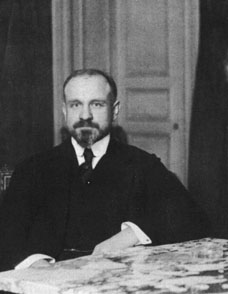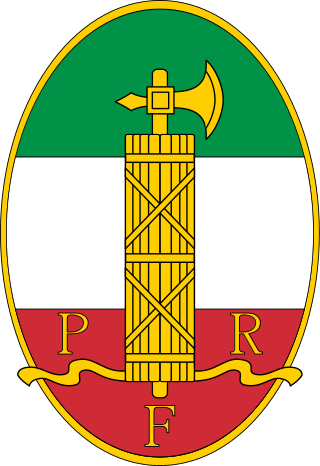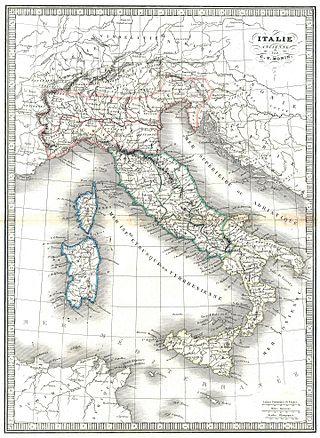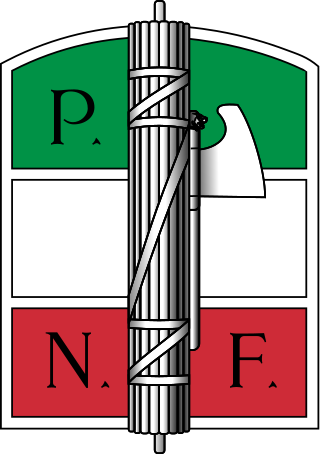
Fascism is a far-right, authoritarian, and ultranationalist political ideology and movement, characterized by a dictatorial leader, centralized autocracy, militarism, forcible suppression of opposition, belief in a natural social hierarchy, subordination of individual interests for the perceived good of the nation or race, and strong regimentation of society and the economy. Opposed to anarchism, democracy, pluralism, egalitarianism, liberalism, socialism, and Marxism, fascism is at the far right of the traditional left–right spectrum.
Neo-fascism is a post-World War II far-right ideology that includes significant elements of fascism. Neo-fascism usually includes ultranationalism, ultraconservatism, racial supremacy, right-wing populism, authoritarianism, nativism, xenophobia, and anti-immigration sentiment, sometimes with economic liberal issues, as well as opposition to social democracy, parliamentarianism, Marxism, capitalism, communism, and socialism. As with classical fascism, it occasionally proposes a Third Position as an alternative to market capitalism.

The Lateran Treaty was one component of the Lateran Pacts of 1929, agreements between the Kingdom of Italy under King Victor Emmanuel III and the Holy See under Pope Pius XI to settle the long-standing Roman question. The treaty and associated pacts were named after the Lateran Palace where they were signed on 11 February 1929, and the Italian parliament ratified them on 7 June 1929. The treaty recognised Vatican City as an independent state under the sovereignty of the Holy See. The Italian government also agreed to give the Roman Catholic Church financial compensation for the loss of the Papal States. In 1948, the Lateran Treaty was recognized in the Constitution of Italy as regulating the relations between the state and the Catholic Church. The treaty was significantly revised in 1984, ending the status of Catholicism as the sole state religion.
The relations between the Catholic Church and the state have been constantly evolving with various forms of government, some of them controversial in retrospect. In its history, the Church has had to deal with various concepts and systems of governance, from the Roman Empire to the medieval divine right of kings, from nineteenth- and twentieth-century concepts of democracy and pluralism to the appearance of left- and right-wing dictatorial regimes. The Second Vatican Council's decree Dignitatis humanae stated that religious freedom is a civil right that should be recognized in constitutional law.

Bernardino Nogara was the financial advisor to the Vatican between 1929 and 1954, appointed by Pope Pius XI and retained by Pope Pius XII as the first Director of the Special Administration of the Holy See. According to historian John F. Pollard, Nogara laid "the foundations" for "one of the biggest pillars for the Vatican's post-Second World War financial strength."

Clerical fascism is an ideology that combines the political and economic doctrines of fascism with clericalism. The term has been used to describe organizations and movements that combine religious elements with fascism, receive support from religious organizations which espouse sympathy for fascism, or fascist regimes in which clergy play a leading role.

Giovanni Gentile was an Italian philosopher, fascist politician, and pedagogue.

Luigi Sturzo was an Italian Catholic priest and prominent politician. He was known in his lifetime as a Christian socialist and is considered one of the fathers of the Christian democratic platform. He was also the founder of the Luigi Sturzo Institute in 1951. Sturzo was one of the founders of the Italian People's Party (PPI) in 1919 but was forced into exile in 1924 with the rise of Italian fascism, and later in 1943 Christian Democracy, although he was never a party member. In exile in London and later New York City, he published over 400 articles critical of fascism. Sturzo's cause for canonization opened on 23 March 2002 and he is titled as a Servant of God.

The Republican Fascist Party was a political party in Italy led by Benito Mussolini during the German occupation of Central and Northern Italy and was the sole legal representative party of the Italian Social Republic. The PFR was the successor to the National Fascist Party but was more influenced by pre-1922 early radical fascism and anti-monarchism, as its members considered King Victor Emmanuel III to be a traitor after his signing of the surrender to the Allies.

Italian fascism, also classical fascism and Fascism, is the original fascist ideology, which Giovanni Gentile and Benito Mussolini developed in Italy. The ideology of Italian Fascism is associated with a series of political parties led by Mussolini: the National Fascist Party (PNF), which governed the Kingdom of Italy from 1922 until 1943, and the Republican Fascist Party (PFR), which governed the Italian Social Republic from 1943 to 1945. Italian fascism also is associated with the post–war Italian Social Movement (MSI) and later Italian neo-fascist political organisations.

The National Fascist Party was a political party in Italy, created by Benito Mussolini as the political expression of Italian fascism and as a reorganisation of the previous Italian Fasces of Combat. The party ruled the Kingdom of Italy from 1922 when Fascists took power with the March on Rome until the fall of the Fascist regime in 1943, when Mussolini was deposed by the Grand Council of Fascism. The National Fascist Party was succeeded by the Republican Fascist Party in the territories under the control of the Italian Social Republic, and it was ultimately dissolved at the end of World War II.
National Union was a pro-fascist Italian Catholic political party during the 1920s, the first of several "Clerico-Fascist" political organizations established within the decade. The party was established with the permission of Pope Pius XI, dealing the final blow to the anti-fascist Catholic Italian People's Party.

Benito Amilcare Andrea Mussolini was an Italian dictator who founded and led the National Fascist Party (PNF). He was Prime Minister of Italy from the March on Rome in 1922, until his deposition in 1943, as well as Duce of Italian fascism from the establishment of the Italian Fasces of Combat in 1919, until his summary execution in 1945. As a dictator and founder of fascism, Mussolini inspired the international spread of fascist movements during the interwar period.
General elections were held in Italy on 26 March 1934. At the time, the country was a single-party state with the National Fascist Party (PNF) as the only legally permitted party.
Pietro Tacchi Venturi was a Jesuit priest and historian who served as the unofficial liaison between Benito Mussolini, the Fascist leader of Italy from 1922 to 1943, and Popes Pius XI and Pius XII. He was also one of the architects of the 1929 Lateran Treaty, which ended the "Roman Question", and recognized the sovereignty of Vatican City, which made it an actor of international relations. A claimed attempt to assassinate Venturi with a paper knife, one year before the treaty's completion, made headlines around the world. Venturi had begun the process of reconciliation by convincing Mussolini to donate the valuable library of the Palazzo Chigi to the Vatican.

The Italian Social Movement was a neo-fascist political party in Italy. A far-right party, it presented itself until the 1990s as the defender of Italian fascism's legacy, and later moved towards national conservatism. In 1972, the Italian Democratic Party of Monarchist Unity was merged into the MSI and the party's official name was changed to Italian Social Movement – National Right.

Fascist Italy is a term which is used in historiography to describe the Kingdom of Italy when it was governed by the National Fascist Party from 1922 to 1943 with Benito Mussolini as prime minister and dictator. The Italian Fascists imposed totalitarian rule and crushed political opposition, while simultaneously promoting economic modernization, traditional social values and a rapprochement with the Roman Catholic Church.
Matthew Feldman is an Anglo-American historian, literary critic and political scientist. As Emeritus Professor in the Modern History of Ideas at Teesside University, and Professorial Fellow at the University of York, Feldman specializes in fascism and the far right in Europe and the United States. He consults on neo-Nazi terrorism, hate crimes and radical right extremism for Academic Consulting Services.











